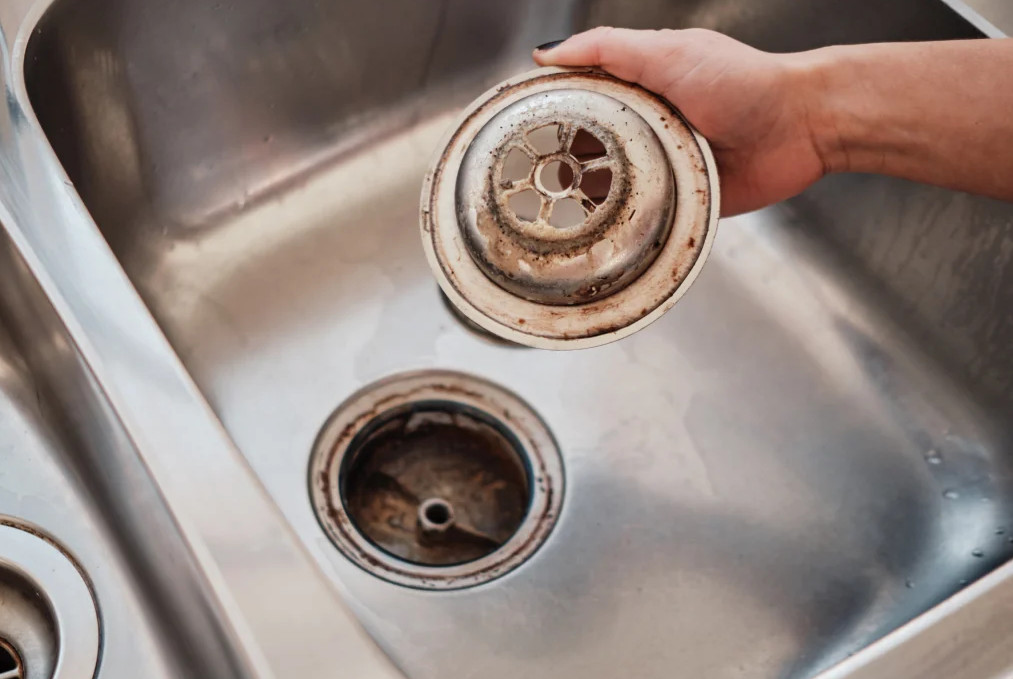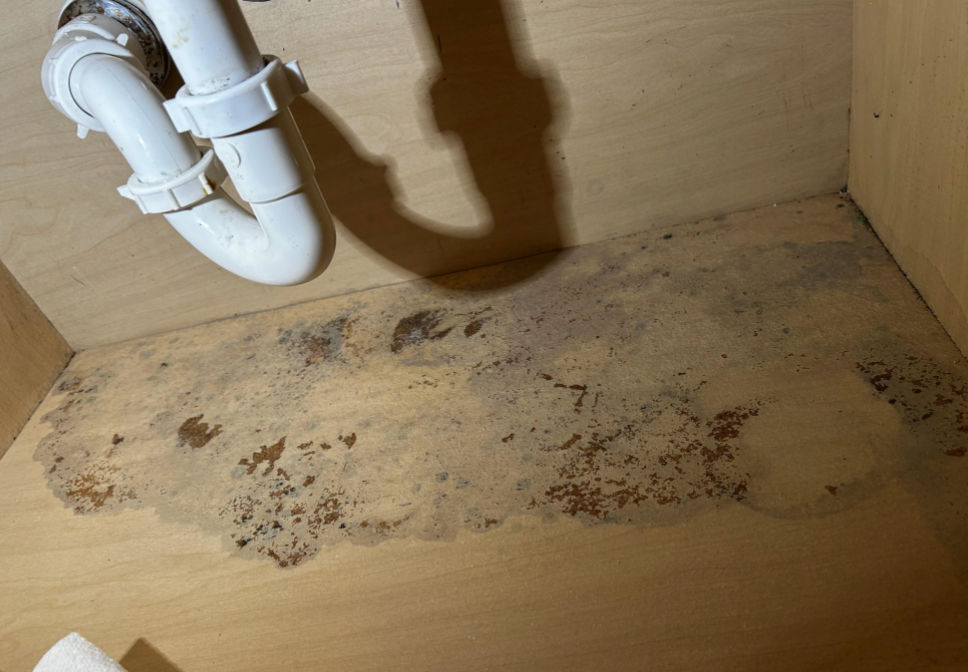How to Get Rid of Musty Smell Under the Sink : A Comprehensive Guide
An odour coming from under the sink can be a very annoying and impetuous issue. The problem is common in households especially if you live in humid areas or have an old plumbing system. But the good news is that with a little bit of work and proper planning you can handle this well. In this essay, I am going to offer you the steps, my own experience and some pro advice to clean your sink of the musty odors that are under there and will never return.
Detecting the Odor Cause: The Source of the Odour.
Before looking for solutions, it is very important to identify the odor of must. Common sources are mold, mildew, leaks or food. Begin by taking everything that’s under the sink and looking over it all.
Ethan Caldwell, as the author of this article and a home management expert, says :
There was once a bad smell of mould under my kitchen sink. I took all the stuff from there and discovered a tiny, slow plumbing leak. The damp had awash in mould behind a cleaning supplies cabinet. I was saved from worse harm when I caught the source in time.
Expert Tip:
Look with a flashlight for small holes that may have leaked, and search the cabinet corners and back wall. Even a small leak can cause excessive moisture, and then mould growth. If you do see mold, use gloves and a mask to avoid being contaminated by the spores.

Cleaning the Space Thoroughly
When you know where the odour is coming from, deep cleaning ensues. This is necessary to clean off any bacteria, spores or remnants that might be still there.
Remove everything and wash everything.
Wipe storage containers, detergents and everything else down with hot soapy water.
Scrub the cabinet surface.
Spray with white vinegar, water (1:1) or mild detergent. Vinegar works really well to kill mould and remove odors.
Be extra careful of corners and crevices where grime could collect.
You can also read these articles on our website:
Address mold or mildew.
Smaller patches: Mix 1 part bleach 10 parts water and wash the patch. H2O Peroxide works great for natural solutions, as well.
Personal Tip:
I never leave the sink without a microfiber cloth at hand. It dries fast and leaves no streaks. I also enjoy adding a few drops of tea tree oil to the cleaning solution which not only gives it the antimicrobial effect but also gives a new fragrance.

Fixing Leaks and Improving Ventilation
You can’t fix the problem under the sink unless it’s a leaking pipe or bad ventilation. This is one aspect that can be fixed before the issue gets worse again.
Fixing Leaks:
Check and tighten connections: Leaky connections are the most common reason for minor leaks. An Allen wrench will do it if necessary.
Rotate old items: Gaskets and seals get old. Replace them as needed.
Apply waterproof sealants: Put silicone sealant on joints for waterproof barrier.
Improving Ventilation:
Vents: You might want to add an air vent or grill for ventilation.
Be sure to have moisture absorbers: Silica gel pads or activated charcoal work well to hold moisture.
3.Add a dehumidifier: If you live in a place where the humidity is very high, a little dehumidifier will help a lot.
Personal Experience:
In one case, after wiping down the smell of mould came back in a few weeks. Poor ventilation was the culprit, I found. I put in a small battery-powered fan under the sink.
Expert Tip:
For those of you who are not sure how to replace a leak, hire a plumber. Your plumbing system and cabinets will be saved from future harm by having expert assistance.
Preventive Steps to Prevent Odors From Surrounding Your Home
Prevention is always better than cure. Once clean and dry, there needs to be a routine in place to avoid the smell.
Get cabinets lined: Not only are cabinet liners protective but also cleaning the cabinets is easy. Make sure to use antimicrobial liner to keep mold at bay.
Close things in sealed boxes: This saves from spillage and also helps in organization.
Keep the room cleaned: Clean it at least once a month so there isn’t a residue or mud.
Sprinkle with natural odor absorbers: Baking soda, coffee grounds or activated charcoal can all neutralize smells.
Personal Tip:
I’ve even began keeping a little bag of dried lavender and baking soda under the sink. It doesn’t just hold moisture, but also a good scent.
Expert Tip:
Avoid overloading the cabinet. Overcrowded spaces hold up air flow and are harder to spot when there is leakage or dampness.

Addressing Persistent Odors
The smell of mould may linger even if you do your best. That might be from leaky pipes, unseen microbial growth or bugs.
Inspect for hidden mold:
If the cabinet is still mouldy, look to the walls or floor underneath for moisture.
Examine the plumbing system:
A broken P-trap (the bend under the sink) can let sewer gases seep out and make you smell bad.
Hire professionals:
To save yourself the time and money if you are concerned with hidden damage, get a mold removal service or a plumber.
Personal Experience:
Especially when, as in this particular case, the P-trap underneath my sink had broken a bit, evinced a sewer-like smell into the cabinet. It just disappeared when replaced.
The Psychological Solace of a Clean, Smelly House.
By removing the smell of musty liquid in the sink, you do more than just improve the external environment, you enhance the internal one too. Unattractive smells can cause you to feel stressed, subconsciously — as if your house wasn’t neat. If you do something to try and deal with these problems, you feel good and at ease.
Personal Reflection:
Now that I fixed my own under-sink odour, I was now a lot more comfortable and willing to welcome visitors. That’s amazing how much a small thing can make you feel good at home.
Conclusion
Destroying musky under sink smell requires you to do a combination of root cause diagnosis, deep clean, remediation and prevention. You can be sure that this space is fresh and smells great if you spend a bit of time doing it.
I’ve found that it is actually better to fix this in advance than waiting for something to happen, and also develop pride in housework. You’ll know exactly what to do to tackle any moldy odours and keep your home fresh and inviting with these professional recommendations and techniques.
FAQ :
- How to fix musty smell under sink?
To fix a musty smell under the sink, start by removing all items and cleaning the area with a mixture of water and vinegar or baking soda. Check for leaks or water damage, as these can cause the odor. Dry the area thoroughly and use a dehumidifier or moisture absorber to prevent dampness. If the smell persists, inspect the pipes for mold or mildew and clean them with a mold-killing solution. - What neutralizes musty smell?
Musty smells can be neutralized using natural absorbents like baking soda, activated charcoal, or white vinegar. Place an open box of baking soda or a bowl of vinegar under the sink to absorb odors. Alternatively, use odor-neutralizing sprays or essential oils like tea tree or eucalyptus. Ensure the area is dry and well-ventilated to prevent the smell from returning. - Why does the underneath of my sink smell bad?
A bad smell under the sink is often caused by moisture buildup, which leads to mold or mildew growth. Leaky pipes, poor ventilation, or trapped food particles can also contribute to the odor. Additionally, a clogged or improperly sealed drain may emit sewer gases. Identifying and addressing the source of moisture or decay is key to eliminating the smell. - How to get rid of moisture under a sink?
To remove moisture under a sink, fix any leaks in pipes or faucets immediately. Use a fan or dehumidifier to dry the area and ensure proper ventilation. Place moisture-absorbing products like silica gel packets or a small bowl of baking soda under the sink. Regularly inspect the area for signs of dampness and clean it to prevent mold growth.
Article source:

Never thought about checking the stored items under my sink, but now that you mention it, I bet those old sponges are part of the problem. This article opened my eyes!
Old or damp items under the sink can often be overlooked but contribute to odors. Swapping them out for airtight storage is a game-changer.
The baking soda and vinegar trick for the drain is my favorite. It’s cheap, natural, and it always does the job! This guide breaks it down so well—thanks
Baking soda and vinegar are indeed powerful allies for a fresh-smelling sink. Keep up the great work
Didn’t realize that ventilation could help prevent musty smells. Might try adding a little vent fan under my sink. Thanks for the tip
Ventilation can make a big difference in keeping the area dry and fresh. A vent fan is an excellent idea—let us know how it works for you!
Can I use baking soda and vinegar to clean the P-trap, or is a different cleaner recommended?
Yes, a combination of baking soda and vinegar is effective for cleaning the P-trap. Pour 1/2 cup of baking soda followed by 1 cup of vinegar down the drain, let it fizz for 10-15 minutes, then flush with boiling water.
How often should I check under my sink for leaks to prevent musty odors?
It’s advisable to inspect under your sink at least once a month for any signs of leaks, condensation, or mold growth to catch potential issues early.
Are there natural alternatives to bleach for removing mold under the sink?
Absolutely, natural alternatives like a mixture of baking soda and vinegar can be effective in removing mold. Apply the solution to the affected area, scrub gently, and rinse thoroughly.
Is it necessary to remove all items from under the sink before cleaning, or can I just move them aside?
For a thorough cleaning, it’s best to remove all items from under the sink. This allows you to access all surfaces and identify any hidden issues.
Can moisture absorbers alone prevent musty smells, or do I need to take additional steps?
While moisture absorbers help reduce humidity, it’s important to also ensure proper ventilation, fix any leaks promptly, and keep the area clean to effectively prevent musty odors.